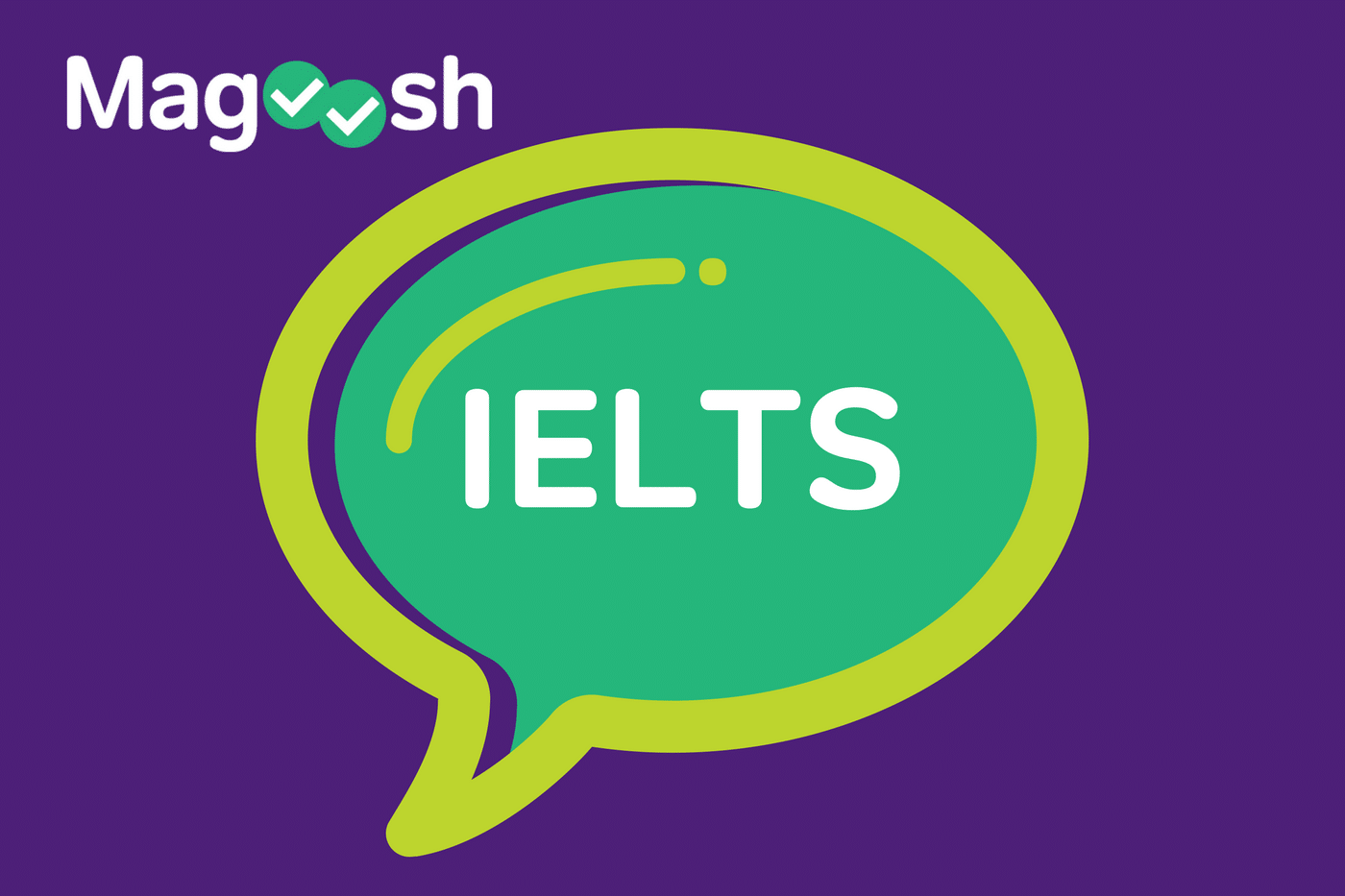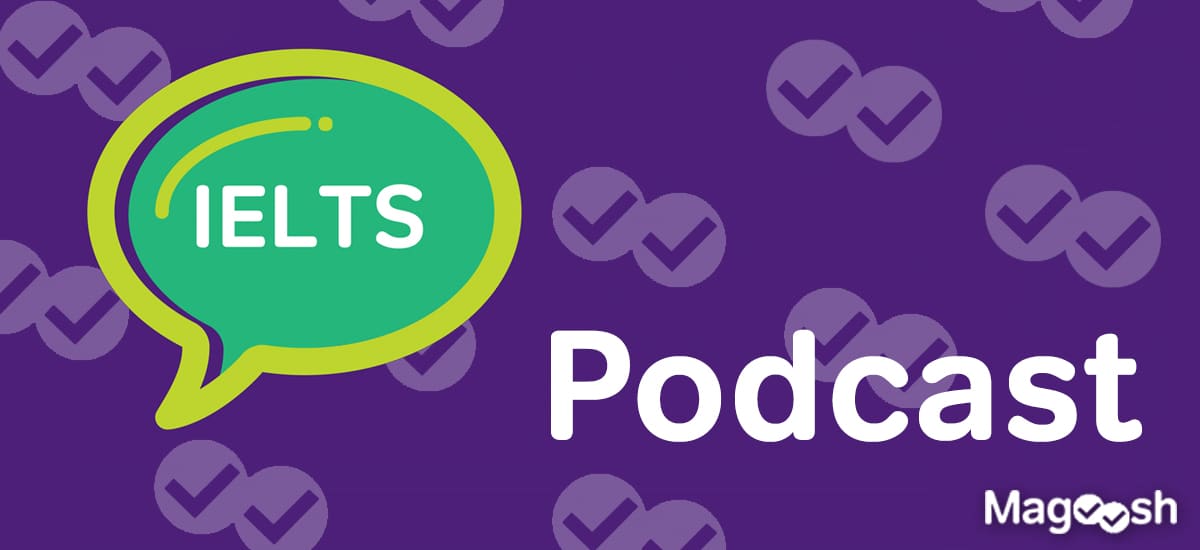
Vocabulary Lesson 6: Work
Listen and subscribe on iTunes or Stitcher. Or listen right here:
In this episode of the Magoosh IELTS podcast, your teacher Eliot Friesen explains how to use four words all related to work: Career, Salary, Shift, and Manual Labour.
These words will be useful in IELTS Listening conversations, as well as in some IELTS Listening solo speeches.
If you like this lesson, please subscribe on iTunes or Stitcher for more IELTS Vocabulary lessons, and check out all of our IELTS Podcast episodes here!
Download the complete list of IELTS Vocabulary words.

IELTS Podcast: Episode 11 Transcript
(Translations: فارسی, Tiếng Việt)
Welcome to the Magoosh IELTS Vocabulary Podcast. This is Lesson 11. In this episode, we will cover 4 words all related to work: Career, Salary, Shift, and Manual Labour.
Don’t forget to check out our show notes for a link to your free IELTS vocabulary list containing these words and others, and visit IELTS.Magoosh.com for more great resources to improve your IELTS band score. Use coupon code “ieltspodcast” to save 20% off your IELTS test prep!
Okay! Let’s get started.
I’d like to introduce you to your teacher, Eliot. He is the Magoosh IELTS expert and, here’s a fun fact about Eliot: his first job was to deliver newspapers door to door in his neighborhood when he was 10.
Eliot Intro
Hello Magoosh IELTS podcast listeners, welcome to today’s show. I’m Eliot, the IELTS expert from Magoosh, and it’s true, I used to be a newspaper delivery boy. Today, we’re going to look at four words that are going to help you to understand the kind of language you’re going to see in the listening passages on your IELTS exam.
Make sure to go to the link in the show notes to get the full list of vocabulary words.
The theme for the words in today’s episode is work, and different words we might use to describe jobs and things that we do for money.
Career
And in fact, career is the first word on the list. So let’s start with that one, okay?
Career, what does it mean?
Well, a career is the category of work that someone does, specifically one that involves long-term commitment. “Career” is a broader term than “job”. A career is a profession.
To help you understand the difference between job and career, I will tell you about my career and the jobs I’ve had in it. I have had a career as an educator. My current job in this career is a Test Expert position here at Magoosh. As a part-time job, I am also a language tutor. And earlier in my education career, I had a job as a middle school teacher, and then as a university professor.
So you would use the word career to describe the type of work that someone is committed to for a significant period of their life. A career generally also has opportunities for progress. For example, someone with a career in food service may have started out working as a dishwasher, and then eventually worked their way up to running a restaurant.
So that’s career.
Salary
The next word is salary.
A salary is a fixed regular payment, typically paid on a monthly basis but often expressed as an annual sum, made by an employer to an employee, especially a professional or white-collar worker. A salary is an annual wage. Someone who does salaried work is paid a certain amount per week or month, while someone who does non-salaried work is paid per hour.
Both salaried and non-salaried employees may work during certain hours which have been set in advance, according to a schedule.
So both types of employees have a shift where they will normally be at work.
But the schedule and hours per day for salary work are not as strictly controlled. A salary worker may have to work much longer hours than usual on a given day, or come in on the weekends.
Sometimes, however, a salary worker’s situation is the opposite. A salary worker may also work shorter hours and have more freedom to leave the workplace during their normally scheduled shifts. Salary workers aren’t paid by the hour and instead receive a fixed rate of pay per week or month.
So as a private math tutor, you would most likely not have a salary, but instead would be paid per hour for each tutoring session. But a math teacher who works at a school would have a salary. So they’ll be paid a flat rate for the year, even though the number of hours they work doing things like grading homework and making lesson plans might vary from week to week.
Okay, so that is salary.
Shift
The next word is shift.
A shift is an interval of work that is scheduled with a specific beginning and ending time. A shift is a work period.
A shift at a workplace often lasts 8 hours, but can be shorter. Shift work is usually paid on an hourly basis.
So for example, a coffee shop employee might work several different shifts a week. On opening shifts, the employee will come in early, open up the shop, and work there until early afternoon. On closing shifts the employee will come in later in the day, take over from the person who worked the morning shift, and stay until the store is closed to make sure everything is properly cleaned and put away.
Different shifts are different work periods during the course of a day.
So that’s shift.
Manual Labor
The final word today is manual labour. So it’s actually a phrase, but it’s a good one to know.
“Manual labour” is the word for work that is very physical, and requires a lot of strength and physical activity. Manual labour is labour done with the hands. Manual labour jobs can be skilled or unskilled.
An example of unskilled manual labour is stocking shelves at a grocery store — you don’t need any special certification or training in order to stock shelves, but it still can be quite physically demanding. An example of skilled manual labour is carpentry, which requires a lot of background knowledge and training, but is still hands-on physical work.
So that’s manual labour.
Outro
Great! In this episode you learned 4 words related to work — for more vocabulary, download the full list of vocabulary in the show notes and tune in to the next episode.
If you like our show, help us out by leaving a rating and review in iTunes and don’t forget to hit the subscribe button. Until next time! This is Naomi at Magoosh wishing you happy studying.



Leave a Reply